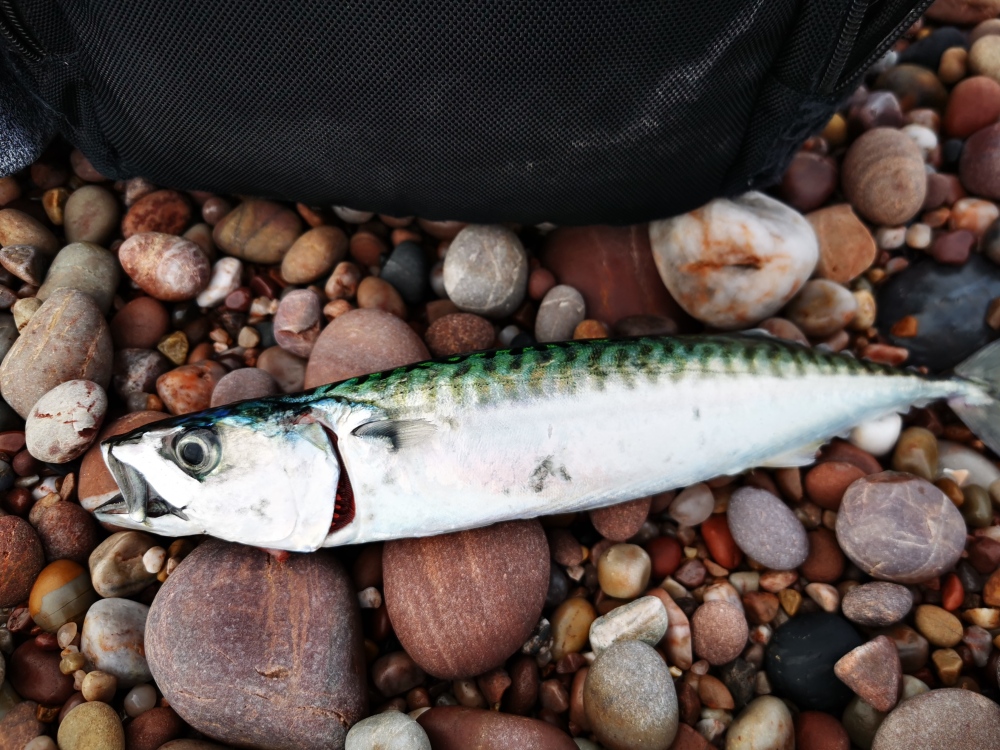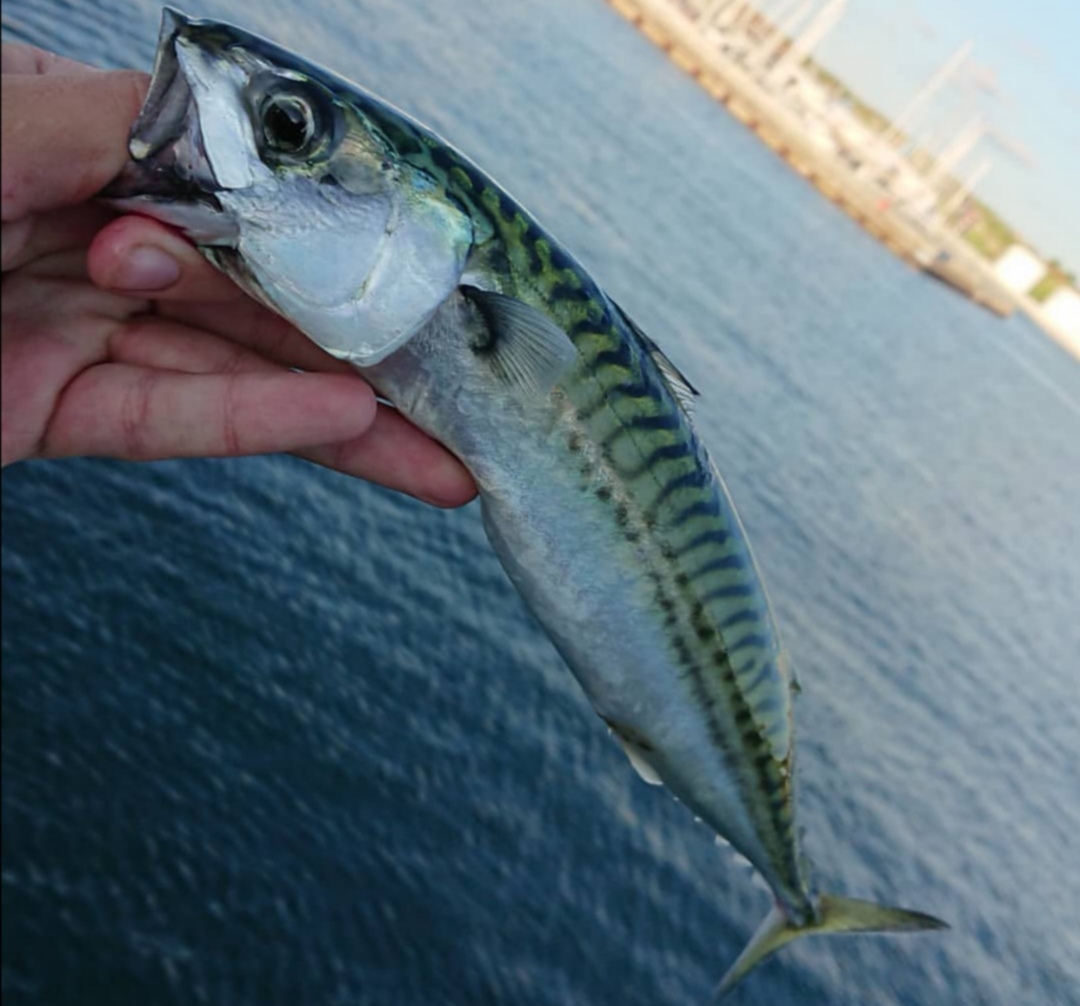The one species that anglers and non anglers associate with summer, good eating and pretty pictures sold in tourist towns is the mackerel. I wasn’t going to write about them as I felt I couldn’t add anything new to the conversation about a beloved fish, caught by almost every angler who has fished saltwater. That was until I read a recent report about overfishing; this struck a chord as I imagined a world where the huge mackerel shoals never arrive and catches dry up. I think we take these fish for granted.

When talking fishing quotas, international waters etc things get politically heated fast. I’m going to put my two cents in briefly because everyone else does! In my opinion, I think Brexit and all its complexities are irrelevant when it comes to fishing quotas. At the end of the day, fish is a healthy food source, while also providing well paid jobs in areas lacking other industry such as Newlyn and Brixham. This makes commercial fishing important and often difficult to critique, that doesn’t mean we shouldn’t though. Fish know no borders, mackerel and other pelagic fish have the freedom of the ocean and follow the food. Surely that means that we must also accept this too? One country cannot decide to take everything that comes into it’s waters or in others, leaving nothing to spawn and be caught by other countries. It requires communication, some humility and a lack of greed – something lacking in today’s world.

The article that triggered me was from the Guardian (link here), reporting how Iceland has raised it’s mackerel quota above the agreed amount with the EU, Norway and the Faroe Islands. The report suggested the country risked catastrophically crashing the East Atlantic mackerel population. The figures are astonishing – the 2020 quota for the above countries is 922, 064 tonnes which, if being generous, you round up a single fish to being 1lb on average is over 2 billion fish – crazy numbers. Iceland have been catching at least 20 percent of that figure which is greed on a despicable level, the big news being that 20 percent are mostly being caught in international waters. The idea that armadas of high tech trawlers following these shoals and hoovering them up is a provocative one and is sadly true. I don’t just want to single out Iceland here though, I just truly believe all countries should be coming together to bring down quotas, lessen waste and remove ‘super-trawlers’ from our oceans. It’s a fantasy I know…

Although we can’t do much about the numbers stated above, we can be sensible ourselves and treat mackerel with a little more respect. I know I’m likely preaching to the choir here, dedicated lure anglers tend to avoid feathering and over-catch. In the unlikely event that the person reading this is someone who fills up bags of mackerel, often with no regard as to what to do with them, I implore you to stop. Quite regularly in late summer I get offered mackerel by random fishermen who have caught and killed too many. Put the feathers away unless you are fishing for bait or preparing a feast that evening! If the fishing is that good you only need one lure.

One big excuse that is often used for killing all mackerel caught is that they will die anyway. There is some truth to the tale that mackerel die once handled by human hands. They have delicate skin with easily dislodged scales, the skin damaging quite simply with our clumsy, oily fingers. There have been a few studies and they have concluded that loss of their protective skin layer can be severe for mackerel, whether that’s by friction with other fish in nets or by the grip of the hand. The best way to keep them alive for catch and release is to use barbless hooks and shake them off with forceps without touching. There are alternative ways to minimise damage though, wearing gloves is one and lip gripping is another. Lip gripping stops the mackerel from dropping on to the floor and minimises contact with the delicate skin on their flanks. Small steps like this give fish a chance to recover and lessens our damage to them for our sport.

To be very clear in no way am I demonising fish eaters, mackerel are delicious. A fresh fish, caught and cooked within 24 hours if some of the finest cost free eating you can ask for. I will quite often keep a mackerel that has taken a lure deep or if I’m intending to take a fish or two, especially in BBQ season. I simply put my fingers under the gills and break it’s neck as quick as possible, ensuring the fish is dispatched with respect and not left in a bag to suffocate. If you are beach fishing you can even gut them there and then, giving back a little bit of food into the system while also having a good look at what it has been eating itself.

I’m passionate about this because some of my finest angling moments have been mackerel based. An evening session in August on Blackpool Sands, Devon come to mind…
I remember we started off slowly, working metals through the water column, catching the occasional bass until the sun began to set. All hell broke loose as the mackerel moved in, hitting everything we cast out there. The pull of these fish was phenomenal on 7 gram rated rods, especially as they reached the shore, never giving up. We fished right into the dark, arms actually aching from all the fun.
There are so many sessions like that, days when everything was quiet until the mackerel turned up and trashed the place like 80’s football hooligans. Those times are when the idea of losing this species to greedy trawlers and wasteful fishermen may seem far off, but is worth thinking about.

I’m writing this in December, a time not often thought of as mackerel season, that doesn’t mean it isn’t though. I have had some fantastic sport on days when I thought I’d be better off next to a fire. The colder months are not as plentiful but with a little perseverance and a slice of luck you can catch a lot of mackerel. Winter fish have the bonus of often being a little bigger too. A healthy local population of mackerel, topped up by the huge numbers that arrive in late summer, benefits everyone from anglers to trawler-men to wildlife.
I don’t think I’m being over the top here, it’s very unlikely this fish would disappear but populations can crash. I just think we can all do with taking care of our fish and restraining our greedy sides. Take what you need, look after the rest and return them, enjoy catching these fantastic fish for years to come. Simple, now to deal with those pesky super trawlers….
As always thank you for taking the time to read my blog, here are some links to more fish and lure filled goodness.
My page on Facebook
My page on Instagram
Richard Salter aka Devon Lerfer – on YouTube and on Facebook.
Dom & Andy’s unmissable new lure fishing book
Adam Kirby’s brilliant lure fishing blog
The LRF/Light Game Fishing Group on Facebook
Neil Sutherland at Aquazid Studio – LRF based T shirt designs and more
Simon Kingdom at Osborne & Cragg – Plymouth based tackle shop with a great selection of lures and everything else
The Art Of Fishing website